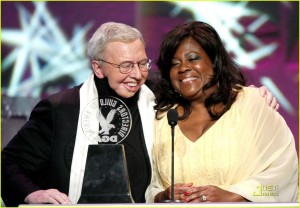Want to Know What James Franco Thinks of “The Great Gatsby?”
Posted on May 17, 2013 at 8:00 am
I’m interested in James Franco’s take on “The Great Gatsby” because of what this polymath who attended two grad schools at once has to say about the challenges of adapting great writing to the screen and the differing goals and audience expectations of a book now viewed as a classic and a movie.
The critics who’ve ravaged the film for not being loyal to the book are hypocrites. These people make their living doing readings and critiques of texts in order to generate theories of varying levels of competency, or simply to make a living. Luhrmann’s film is his reading and adaptation of a text—his critique, if you will. Would anyone object to a production of Hamlet in outer space? Not as much as they object to the Gatsby adaptation, apparently. Maybe that’s because Gatsby is so much about a time and a place, while Shakespeare, in my mind, is more about universal ideas, ideals, and feelings. Luhrmann needed to breathe life into the ephemera and aura of the 20s and that’s just what he succeeded at.
A film, of course, relies on an immediate tension in a fundamentally different way than a book. And barring the most cinematic of texts, films developed from literary sources must run along a tighter thread. Once Gatsby’s mission of wooing Daisy back is accomplished, some of the wind is taken out of the story. We don’t really care about their relationship as much as we care about Gatsby’s overblown efforts to rise in social and economic status to get her back. And this is a universal and rarely accomplished goal that is still relevant today, made even more so by the director’s use of modern window dressing. Gatsby’s desire is revealed to be that of a 16-year-old boy: not only does he want to win Daisy, he wants to control her affections. It reminds me of my high school relationships, where I tortured girlfriends for getting fingered by other boys when they were freshmen. Just move on, dude. We are obsessed by his obsession but aren’t significantly moved by his accomplishment of the goal.



